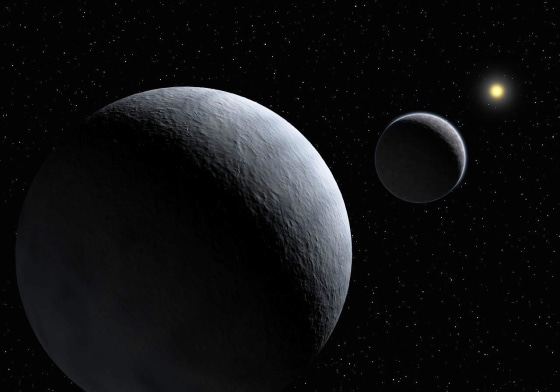While NASA's New Horizons probe closes in on its rendezvous with Pluto, astronomers are revisiting the dwarf planet — not physically, but conceptually. Experts discussed the International Astronomical Union's decision in 2006 to take the icy world out of the traditional nine-planet lineup during a debate on Thursday. The debate was presented at the Harvard-Smithsonian Center for Astrophysics and webcast via YouTube.
Science historian Owen Gingerich presented the historical viewpoint on planethood. Gareth Williams, associate director of the IAU's Minor Planet Center, presented the IAU's viewpoint. And Harvard's Dimitar Sasselov provided perspectives from exoplanet research. Each proposed a definition of planethood. When a straw vote was taken at the end, Sasselov's definition won out — and so did Pluto. Here's a condensed version of Sasselov's definition: "A planet is the smallest spherical lump of matter than formed around stars or stellar remnants. Pluto IS a planet." Does that do it for you? Check out the archived webcast for the blow-by-blow.
IN-DEPTH
- NASA Marks Milestones for Voyager and New Horizons
- Pluto Debate Is About More Than One Little World
- Flash Interactive: Your Guide to the New Solar System
